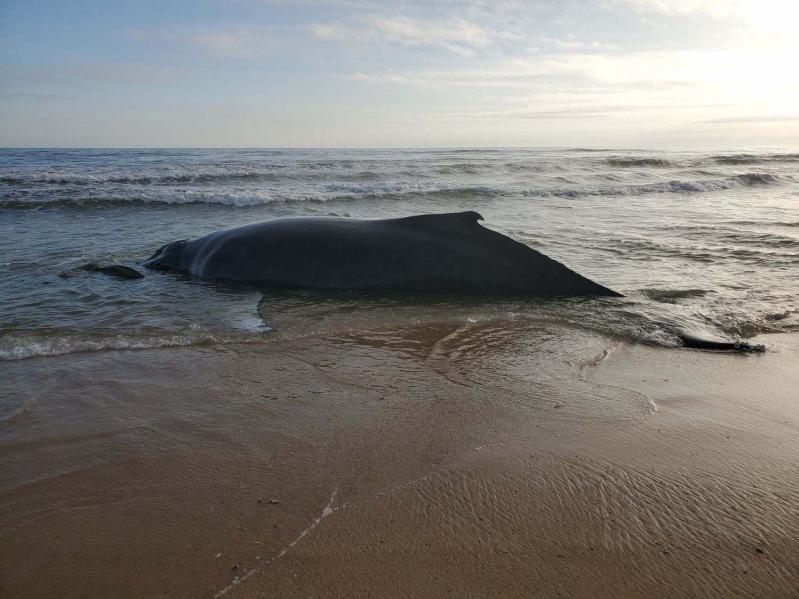A 38-foot adult female humpback whale washed up on the shore at Napeague State Park in Amagansett on Dec. 17, but according to Joanne Biegert, a representative of the Atlantic Marine Conservation Society, because of the whale's advanced state of decomposition the organization cannot determine a cause of death.
"We took samples of the reproductive tract, blubber, and skin and bone fragments and sent them to be analyzed," Ms. Biegert said Monday morning by phone. "It can take a long time for that to be completed, maybe months," she added.
After the samples are analyzed the organization should have a more complete picture of the whale's history. Each of the different samples taken will give a different insight to parts of the whale's past.
According to a Facebook post from the society, "blubber thickness can indicate the general health of an animal, organ tissues can be examined for damage, disease, infection, [and] possible contaminants, and genetic material can help us learn more about the life history of this individual."
The society came onto the scene on Dec. 19 to observe the whale and take samples. The whale had fractures to its skull but the organization believes that those occurred post-mortem.
According to the Facebook post "the whale was buried on site" to the standards of the National Oceanic and Atmospheric Organization.




